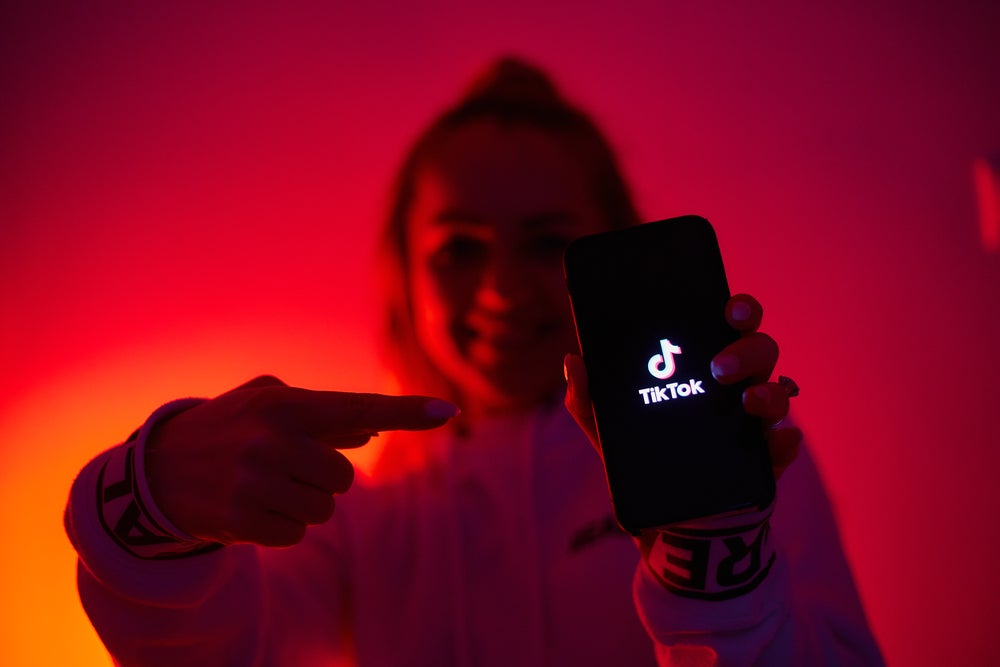‘Cloud serf’ TikTokers have been quitting vaping this month as part of a protest movement against excessive electronics waste and exploitation.
The use of child labour and notoriously dangerous mining practices in the Democratic Republic of Congo (DRC) have caused alarm among younger TikTok users. The extraction of cobalt, a critical mineral essential to not only electric car batteries but also similar, smaller batteries in disposable vapes, is dominated by the DRC, which accounts for approximately 70% of global production according to GlobalData.
Users have realized that, by engaging in achievable boycotts of products involving cobalt, they can raise awareness and encourage change to global consumption and production practices.
Health and wealth
Vaping has been linked to lung diseases due to the use of cobalt in the electronic components of e-cigarettes. Cobalt dust inhalation, due to its toxicity, can cause irreparable damage to the lungs. One 49-year-old woman was diagnosed with hard-metal pneumoconiosis after using a marijuana vape pen, a condition most often seen among metal workers.
However, TikTokers are not as concerned about the health implications of a continued vaping habit. Often, these are younger users with limited resources and a lack of regard for their long-term health, but access to potentially limitless social capital through social media. TikTok user @itskristinamf’s video announcing that she was quitting vaping in solidarity with the people of the DRC was viewed, as of November 27, 1.7 million times since posting on November 16. She has subsequently posted more videos highlighting the situation in the DRC and the plight of children and other vulnerable people in the context of ongoing conflict in the east of the country and the infamously exploitative mining industry.
Gen Z has a reputation for making sudden, collective decisions that influence consumer behaviour and impact target markets significantly. While producers could simply prioritize not using harmfully extracted materials and child labour in pursuit of lower production costs, Gen Z’s often trend-based consumption habits and penchant for social activism can nevertheless be extremely difficult to predict and manage.
How well do you really know your competitors?
Access the most comprehensive Company Profiles on the market, powered by GlobalData. Save hours of research. Gain competitive edge.

Thank you!
Your download email will arrive shortly
Not ready to buy yet? Download a free sample
We are confident about the unique quality of our Company Profiles. However, we want you to make the most beneficial decision for your business, so we offer a free sample that you can download by submitting the below form
By GlobalDataTo call these behaviors ‘trend-based’ is not to debase or invalidate them but is instead a way to describe the collective action of young people seeking identity and justice in what limited ways they can. Social media’s impact on their ability to achieve these aims is well-known. The ability of anyone with a phone and an internet connection to make a reportable difference to anything at no extra cost is remarkable. However, this phenomenon also questions the traditional understanding of consumer power.
Cloud serfs
When a user posts a video to TikTok, they are—almost universally—not paid for it. When a person commutes to work and back, with Google Maps tracking their location, they are also not remunerated. In both instances, data is being collected, all the while increasing the value of the companies handling and owning it.
Speaking on the Ways to Change the World podcast for Channel 4, economist Yanis Varoufakis presented the idea of the “cloud serf” to describe this phenomenon. He argues that contributing to the capital of corporations without being a paid labourer is akin to serfdom seen historically in places like Russia. The impact of this arrangement on the global economy could be significant.
The payment of wages stimulates demand in the economy. In this way, capital being produced without wages being paid in recompense shrinks demand. This reduction in consumer activity prompts central banks to print more money to stimulate demand and keep the economy afloat, in turn fuelling higher levels of inflation that much of the world is currently suffering from. In this framework, by not compensating its ‘cloud serfs’, Big Tech is contributing to a central banking crisis and consumers are faced with decreasing purchasing power over time.
The power of boycotting
However, all is not lost. While purchasing power may decrease, consumers always have something one could call ‘non-purchasing’ power – boycotting. As the wave of young people quitting vaping on TikTok demonstrates, simply not buying a product can be equally—if not more—powerful than buying.
After all, it is easier to convince people—particularly young people with limited financial means—to not part with their money than to commit to expenditure. Companies selling to consumers—particularly young consumers—will need to increase their awareness and address the visibility of their business practices to maintain satisfactorily high revenues.
Meanwhile, Big Tech and social media platforms will need to address the handling and compensation structures of their businesses to adequately reflect the user contribution to their values. Initiatives such as TikTok’s Creator Fund go some way to tackling this issue, but systemic changes are required for benefits to be reaped and crises averted.









Related Company Profiles
Google LLC
TikTok